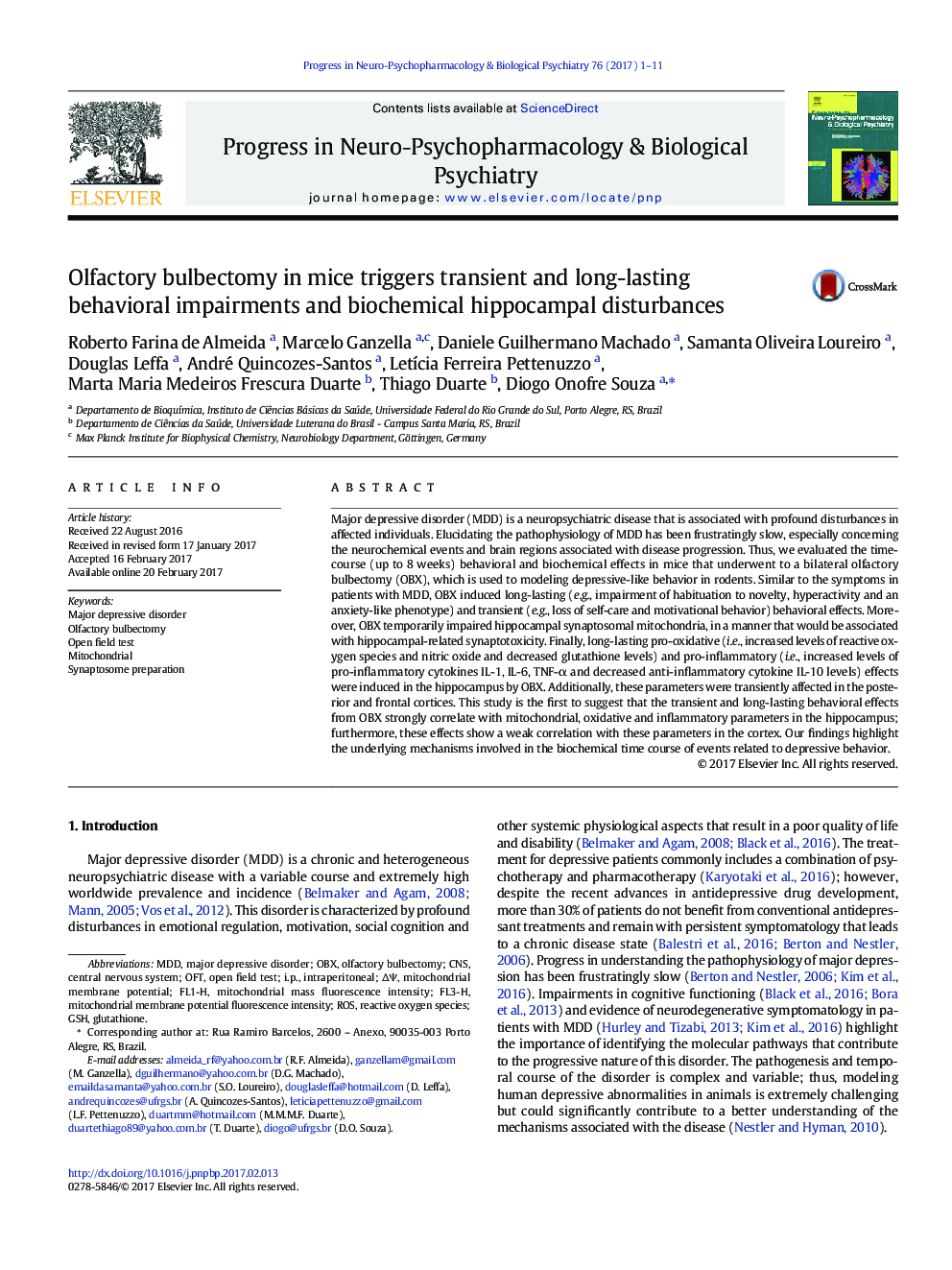| Article ID | Journal | Published Year | Pages | File Type |
|---|---|---|---|---|
| 5558083 | Progress in Neuro-Psychopharmacology and Biological Psychiatry | 2017 | 11 Pages |
â¢Olfactory bulbectomy in mice triggers to a transient and long-lasting behavioral disturbances.â¢Olfactory bulbectomy in mice induces a transient impairment in synaptosomal mitochondria mass and ÎΨ.â¢Olfactory bulbectomy in mice leads to a long-lasting hippocampal imbalance in redox and inflammatory homeostasis.
Major depressive disorder (MDD) is a neuropsychiatric disease that is associated with profound disturbances in affected individuals. Elucidating the pathophysiology of MDD has been frustratingly slow, especially concerning the neurochemical events and brain regions associated with disease progression. Thus, we evaluated the time-course (up to 8 weeks) behavioral and biochemical effects in mice that underwent to a bilateral olfactory bulbectomy (OBX), which is used to modeling depressive-like behavior in rodents. Similar to the symptoms in patients with MDD, OBX induced long-lasting (e.g., impairment of habituation to novelty, hyperactivity and an anxiety-like phenotype) and transient (e.g., loss of self-care and motivational behavior) behavioral effects. Moreover, OBX temporarily impaired hippocampal synaptosomal mitochondria, in a manner that would be associated with hippocampal-related synaptotoxicity. Finally, long-lasting pro-oxidative (i.e., increased levels of reactive oxygen species and nitric oxide and decreased glutathione levels) and pro-inflammatory (i.e., increased levels of pro-inflammatory cytokines IL-1, IL-6, TNF-α and decreased anti-inflammatory cytokine IL-10 levels) effects were induced in the hippocampus by OBX. Additionally, these parameters were transiently affected in the posterior and frontal cortices. This study is the first to suggest that the transient and long-lasting behavioral effects from OBX strongly correlate with mitochondrial, oxidative and inflammatory parameters in the hippocampus; furthermore, these effects show a weak correlation with these parameters in the cortex. Our findings highlight the underlying mechanisms involved in the biochemical time course of events related to depressive behavior.
